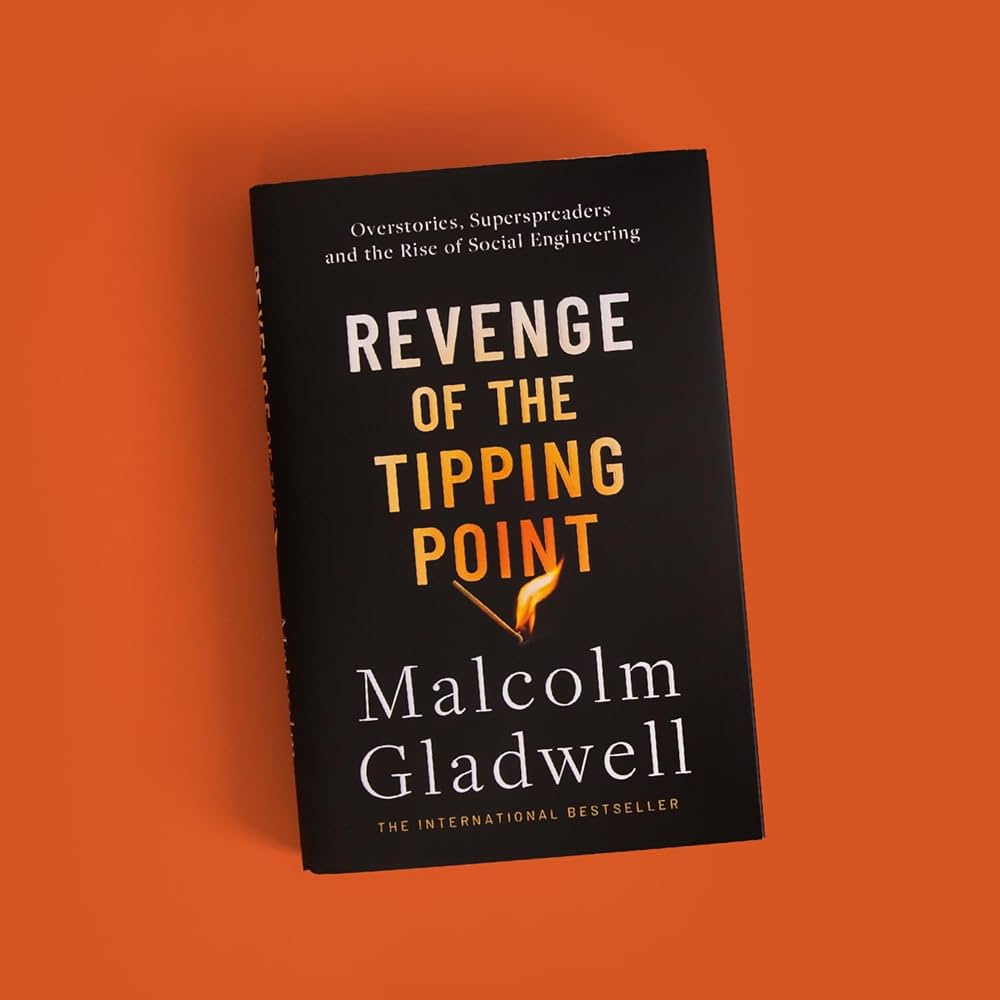Author’s Note
byAuthor’s Note in Revenge of the Tipping Point: Overstories, Superspreaders, and the Rise of Social Engineering provides an insightful reflection on the author’s journey, particularly highlighting the trajectory of his first book, The Tipping Point: How Little Things Make a Big Difference. Published twenty-five years ago, The Tipping Point was conceived during the author’s time in a small Chelsea apartment, where he experienced the nerves and excitement typical of a first-time author. He describes the book as “the biography of an idea,” a project aimed at examining how small, seemingly insignificant factors can lead to massive societal changes, much like how ideas and behaviors spread in a manner similar to epidemics. The concept of viewing trends, fashion, crime, and cultural shifts through the lens of an epidemic, where something as small as a “tipping point” can trigger widespread change, was the foundation of his book, which connected scientific principles of contagion to social behavior.
When The Tipping Point was released in 2000, it initially met with a modest reception. At his first reading, only a small crowd gathered to listen to the author speak. However, over time, the book gained traction, and its ideas resonated with a wider audience, eventually earning a permanent spot on the New York Times bestseller list. The term “tipping point” rapidly entered the public lexicon, often used to describe pivotal moments or sudden changes in various contexts. The author speculates that the book’s success stemmed in part from the hopeful message it conveyed, aligning with the optimism and sense of possibility that accompanied the dawn of the new millennium. This positive spirit was prevalent in societal discourse at the time, fostering a belief that significant social change was possible. As the world entered the 21st century, the book’s exploration of how small changes can cause monumental shifts mirrored the societal optimism that permeated public conversations.
Now, after more than two decades, the author reflects on how both his personal life and professional career have evolved since the publication of The Tipping Point. He admits to some reservations about certain aspects of the book, particularly the inclusion of chapters on children’s programming like Sesame Street and Blue’s Clues, despite his lack of direct experience with young children at the time. Over the years, the author has experienced considerable growth, both personally and in his career. He has written more books, launched a successful podcast, and witnessed the changes in his family life, all of which have given him new perspectives on his earlier work. These personal milestones and changes in his worldview have led him to reconsider some of the assumptions and choices he made while writing The Tipping Point, prompting deeper reflection on the book’s messages and the broader societal implications of those ideas.
As he revisits his first book, the author expresses a desire to approach the concept of social epidemics with a fresh, more mature perspective. This chapter serves as the prelude to an updated exploration of the topics introduced in The Tipping Point, with a deeper analysis of the complexities of how ideas, behaviors, and social trends continue to spread in today’s world. The author acknowledges that certain questions that remained unresolved after the original publication have now become a focal point of his research and inquiry. Revenge of the Tipping Point seeks to build on the foundation laid by its predecessor by examining the evolving dynamics of how ideas spread and how these dynamics influence social behavior in the modern age. This reflection on his earlier work has not only given the author new insights but has also opened up new avenues of thought regarding the role of social forces in shaping contemporary culture.
The process of revisiting The Tipping Point has also led to a greater understanding of the challenges inherent in studying social change. In reflecting on the evolution of his own thinking, the author grapples with how much of the landscape of social change has shifted since the book’s publication. With the advent of new technologies, the proliferation of social media, and a rapidly changing global landscape, the mechanisms that drive societal change have become more complex than ever before. The author aims to address these complexities in Revenge of the Tipping Point, bringing his matured perspective to bear on the challenges of understanding how small events can lead to large-scale shifts. By revisiting his initial ideas with a more nuanced approach, he hopes to offer a deeper exploration of the forces at play in modern society, shedding light on the impact of social engineering, information spread, and the new challenges that shape the way ideas move through the world today.
Ultimately, the author’s reflections in this chapter not only revisit his first book’s themes but also signal his evolution as a thinker. Revenge of the Tipping Point builds on the foundational ideas introduced in The Tipping Point but goes further in analyzing the contemporary social landscape, where new technologies, social media, and globalization have added new layers of complexity to the spread of ideas and behaviors. The author’s journey of self-reflection and growth over the past 25 years has provided him with fresh insights into the power of small events and their ability to create widespread societal change. By continuing to investigate these phenomena, the author seeks to contribute to a deeper understanding of the forces shaping modern society, highlighting the ongoing relevance of his work as the world continues to evolve.


